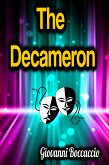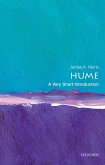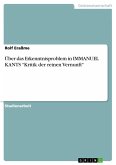Romola George Eliot - Romola (186263) is a historical novel written by Mary Ann Evans under the pen name of George Eliot set in the fifteenth century. It is "a deep study of life in the city of Florence from an intellectual, artistic, religious, and social point of view". The story takes place amidst actual historical events during the Italian Renaissance, and includes in its plot several notable figures from Florentine history.The novel first appeared in fourteen parts published in Cornhill Magazine from July 1862 (vol. 6, no. 31) to August 1863 (vol. 8, no. 44), and was first published as a book, in three volumes, by Smith, Elder & Co. in 1863.
Dieser Download kann aus rechtlichen Gründen nur mit Rechnungsadresse in A, B, BG, CY, CZ, D, DK, EW, E, FIN, F, GR, H, IRL, I, LT, L, LR, M, NL, PL, P, R, S, SLO, SK ausgeliefert werden.









